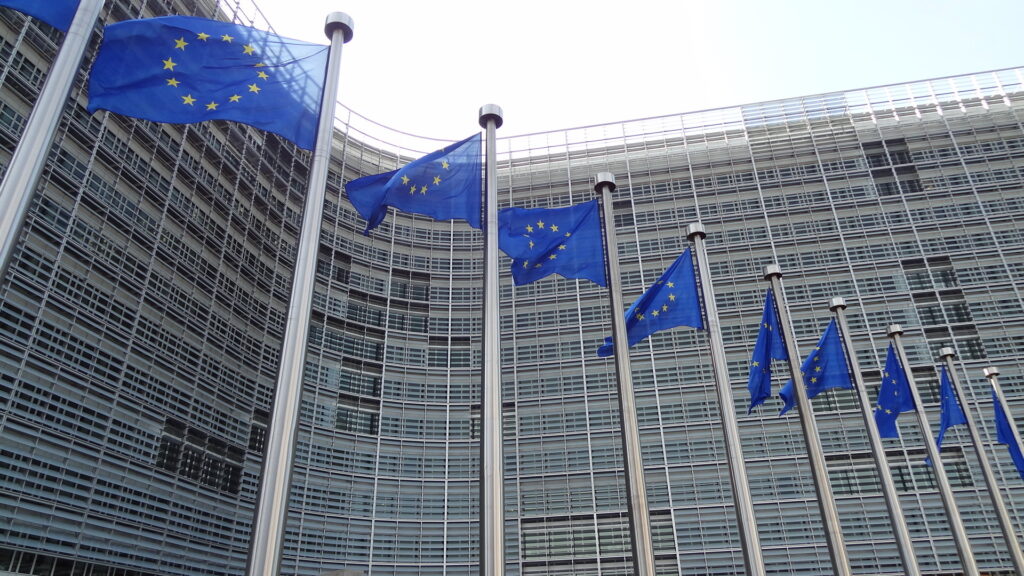Germany’s major opposition party, the Christian Democratic Union (CDU) has now taken the position that the right to asylum has been too broadly defined by the courts and needs to “stripped back to its original postwar core if countries were to regain control over immigration”, according to an interview granted to the London Times by one of its leading members, Thorsten Frei, a leading lawyer and member of the CDU.
This is potentially a significant change in German policy on immigration – especially when one recalls the very different approach to immigration advocated and adopted by former CDU chancellor, Angela Merkel, who famously opened Germany to an inward movement of up to one million Syrians in the wake of the terrible civil war.
Horsten Frei explained that the only way to rescue Europe’s Schengen visa-free travel zone is a temporary closure of German borders to asylum claimants, a move which would result in other member states following suit as a prelude to fundamental change.
In guaranteeing freedom of movement for economic purposes to citizens of its member states, the EU took a huge step in terms of mutual trust and opening of borders. Abolition of inter-state border controls for those permitted to enter the EU is undoubtedly a huge advantage in terms of mobility and commonly shared sense of solidarity among EU member states and their citizens.
But when it comes to the external borders of the Union and the capacity of member states to regulate inward migration from non-EU states, the theory that asylum-seeking trumps all measures put in place to manage and control migration proves extremely problematical.
Repatriation of failed asylum and international protection applicants is massively difficult in terms of administrative and physical resources. Deportation is easily evaded and very difficult to organise.
An economic migrant who invokes asylum and international protection rights is given great tactical and legal advantages over the capacity of a state to effectively and efficiently draw a real distinction as to entitlements.
All of this is massively compounded by the provisions of Articles 18 and 19 of the Charter of Fundamental Rights of the European Union which binds all member states when dealing with matters of Union law and which has, in Ireland’s case, the equivalent of constitutional status as a matter of Irish domestic law in that role. Those articles enshrine rights and duties in respect of asylum seeking and international protection.
The EU has over two decades assumed competence in relation to asylum rights, procedures, recognition and protection. Put bluntly, this means that in the area of asylum seeking and international protection Ireland is bound by the decisions and jurisprudence of the Court of Justice of the European Union.
By a series of EU legislative enactments, Ireland has largely lost the right to unilaterally refuse asylum to anyone travelling to Ireland through other states that would be obliged to afford them asylum. The original popular understanding of the Dublin Regulation has been replaced with very much diluted and more cumbersome procedures that fail to avoid asylum and protection forum- shopping by those choosing their preferred asylum destination.
There is growing European realisation that international economic migration is becoming conflated with asylum seeking in practical terms. This is not simply a matter of political reaction in states such as Italy and Hungary. It is increasingly understood in places such as Denmark (which wisely opted out of the EU jurisdiction in these areas), in the Netherlands, Austria, and now in Germany.
Politicians sense that failure to re-establish effective member state competences in asylum seeking, international protection and migration law is not merely politically unsustainable but potentially a profound danger for the entire EU project in terms of cohesion and popular support.
The CDU in Germany cannot be airily dismissed as the far right in the way that the German AFD is rightly regarded in Brussels and most EU capitals. Migration is a polarising issue politically if left unaddressed and uncontrolled in any state.
Centre-ground politicians across the EU now need to address the issue in a realistic way. It cannot be left to judges in Luxembourg or even to members of the EU parliament in Brussels and Strasbourg.
EU member states collectively share the power to adopt EU treaty-level measures to address the glaring reality that mass migration invoking elaborate legal protections for asylum seekers is simply something that the authors of the 1951 Geneva Convention on Asylum and its 1967 Protocol did not remotely envisage or provide for.
The recently adopted EU asylum and migration pact simply will not address the issue. If the CDU in Germany now recognises that reality, there is hope for treaty-level reform of EU asylum and migration law. Ireland’s government should support such reforms and encourage their development.
Failure to do so at an EU level is bound to damage the Union severely; Ireland’s interests are engaged here and require political courage.

